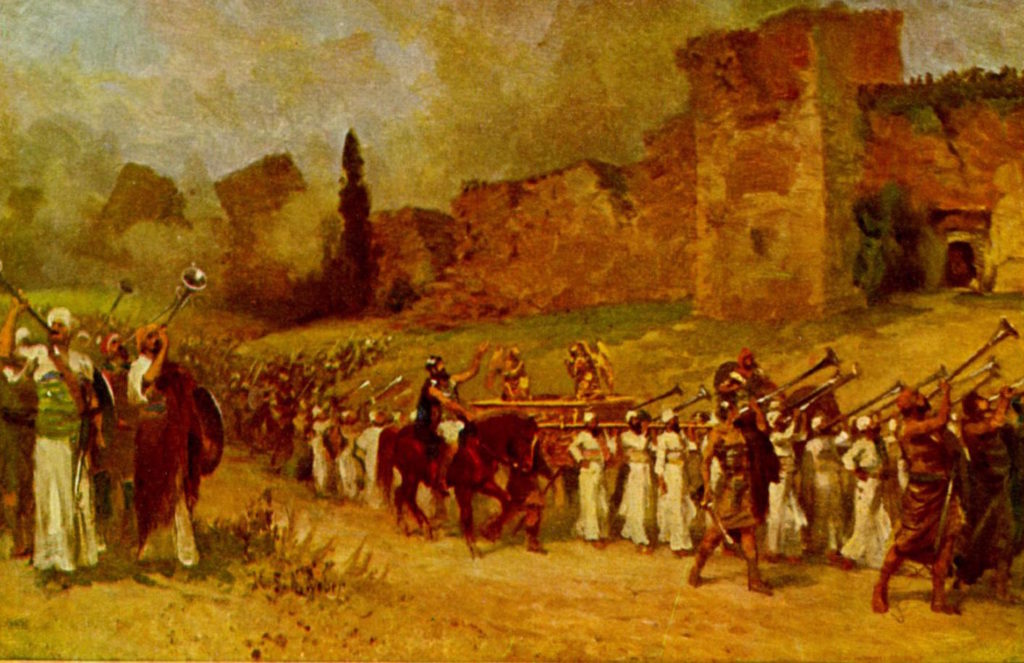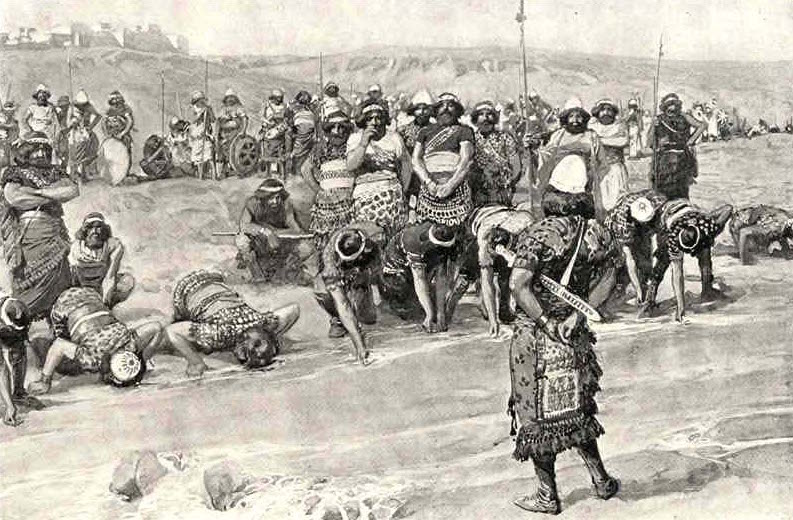Today’s reading: Deuteronomy 20; Psalm 107; Isaiah 47; Revelation 17
June 15th, 2016
Deuteronomy 20 contains laws pertaining to warfare. Today we will dive into those focused on the army (verses 1-9) but instead of closing with a question, here is one for your consideration as you read; if you knew a battle was coming soon that you were going to fight in, what would you do today?
When thou goest out to battle against thine enemies, and seest horses, and chariots, and a people more than thou, be not afraid of them: for the Lord thy God is with thee, which brought thee up out of the land of Egypt. And it shall be, when ye are come nigh unto the battle, that the priest shall approach and speak unto the people, And shall say unto them, Hear, O Israel, ye approach this day unto battle against your enemies: let not your hearts faint, fear not, and do not tremble, neither be ye terrified because of them; For the Lord your God is he that goeth with you, to fight for you against your enemies, to save you. – Deuteronomy 20:1–4
Like everything else, the Israelite conception of war centered on trust in God. This meant they did things different than most nations. For example, God’s law discouraged them from keeping a standing army. Back in Deuteronomy 17:14-20 we see the restrictions placed on the king. You might think things pertaining to the king would list off rights and privileges, instead we find a list of restrictions and obligations. The restrictions and obligations all pointed to trust in God. The law restricted the king from amassing power; no amassing horses for a cavalry, nor wives, nor wealth for paying an army. He and the people were not to build up trust in things of this world. The obligations pointed to where the king’s power actually comes from and where he and his people should place their trust. The king’s obligation upon taking the throne was to write a copy of the law, to keep it by him and read it every day he lives that he may learn to fear the LORD his God; to keep the law and do it that his heart not be lifted up among his brethren nor turn from the commandments. With this in mind the verses above were to a civilian population formed in to a militia only when needed. The law regarding the army continues.

And the officers shall speak unto the people, saying, What man is there that hath built a new house, and hath not dedicated it? let him go and return to his house, lest he die in the battle, and another man dedicate it. And what man is he that hath planted a vineyard, and hath not yet eaten of it? let him also go and return unto his house, lest he die in the battle, and another man eat of it. And what man is there that hath betrothed a wife, and hath not taken her? let him go and return unto his house, lest he die in the battle, and another man take her. – Deuteronomy 20:5–7
Here we have another oddity when compared to other nations. In the time of war a nation will often call up the young men from among the people to fight for her. Here is the opposite. We see here a list of able bodied men who were told in a sense ‘we don’t need you to fight for us, get out of here.’ Let me explain my presumption at them being able bodied. They either just built a house, planted a vineyard, or married. Interesting. Again clearly we see a different idea of battle plans; trusting in things of this world are dismissed and replaced with trust in the LORD.

And the officers shall speak further unto the people, and they shall say, What man is there that is fearful and fainthearted? let him go and return unto his house, lest his brethren’s heart faint as well as his heart. And it shall be, when the officers have made an end of speaking unto the people, that they shall make captains of the armies to lead the people. – Deuteronomy 20:8–9
The last law pertaining to the army is quite clear. The first two sections we looked at apply to who we trust in and who we do not trust in. This law deals with those we do not subscribe to the truth. Go home. God’s got this. The dismissal of the faithless protects the faithful.
Extra credit:
- Exodus 17:8-15 – Moses trusts in the LORD in battle
- Joshua 6 – Joshua trusts in the LORD in battle
- Judges 7– Gideon trusts in the LORD in battle
